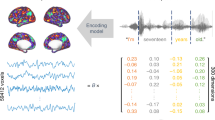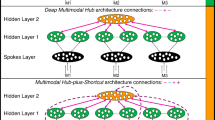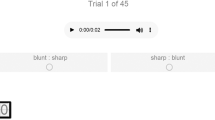Abstract
LISTENERS do not ordinarily retain the syntax of a sentence for longer than is necessary to grasp its meaning; they rapidly forget both superficial ‘surface structure’ and underlying ‘deep structure’1–3. What they retain is the sense of the sentence, evidently divorced from its syntax. It has been argued that this sense might consist of an associative structure linking representations of the words in the sentence4. Yet, if meaning is divorced from syntax, it might also be divorced from words. Indeed, we shall argue that a semantic representation need not incorporate any direct information about the lexical categories of words; it merely appears to do so because they can often be reconstructed from the meaning of a sentence. It follows, of course, that the specific wording of a sentence should ordinarily be rapidly forgotten5. One simple test of this hypothesis, avoiding the predictability of words from meaning, is to examine a person's ability to recollect whether a certain element of meaning was conveyed by a noun or a verb. (Does the reader recollect with any confidence whether, for example, we wrote earlier, “the divorce of meaning from syntax”, or “meaning is divorced from syntax”?) We predicted that information about lexical categories would tend to be forgotten if subjects were unaware that their memory for a sentence was to be tested, but that it would tend to be remembered if subjects expected their memory to be tested.
This is a preview of subscription content, access via your institution
Access options
Subscribe to this journal
Receive 51 print issues and online access
$199.00 per year
only $3.90 per issue
Buy this article
- Purchase on Springer Link
- Instant access to full article PDF
Prices may be subject to local taxes which are calculated during checkout
Similar content being viewed by others
References
Sachs, J., Percept. Psychophys., 2, 437 (1967).
Fillenbaum, S., Proc. 76th Ann. Conv. Am. psychol. Assoc., 3, 9 (1968).
Johnson-Laird, P. N., and Stevenson, R., Nature, 227, 412 (1970).
Anderson, J. R., and Bower, G. H., Human Associative Memory (Winston, Washington, DC, 1973).
Jarvella, R. J., and Herman, S. J., Percept. Psychophys., 11, 381 (1972).
Author information
Authors and Affiliations
Rights and permissions
About this article
Cite this article
JOHNSON-LAIRD, P., ROBINS, C. & VELICOGNA, L. Memory for words. Nature 251, 704–705 (1974). https://doi.org/10.1038/251704a0
Received:
Revised:
Issue Date:
DOI: https://doi.org/10.1038/251704a0
Comments
By submitting a comment you agree to abide by our Terms and Community Guidelines. If you find something abusive or that does not comply with our terms or guidelines please flag it as inappropriate.



